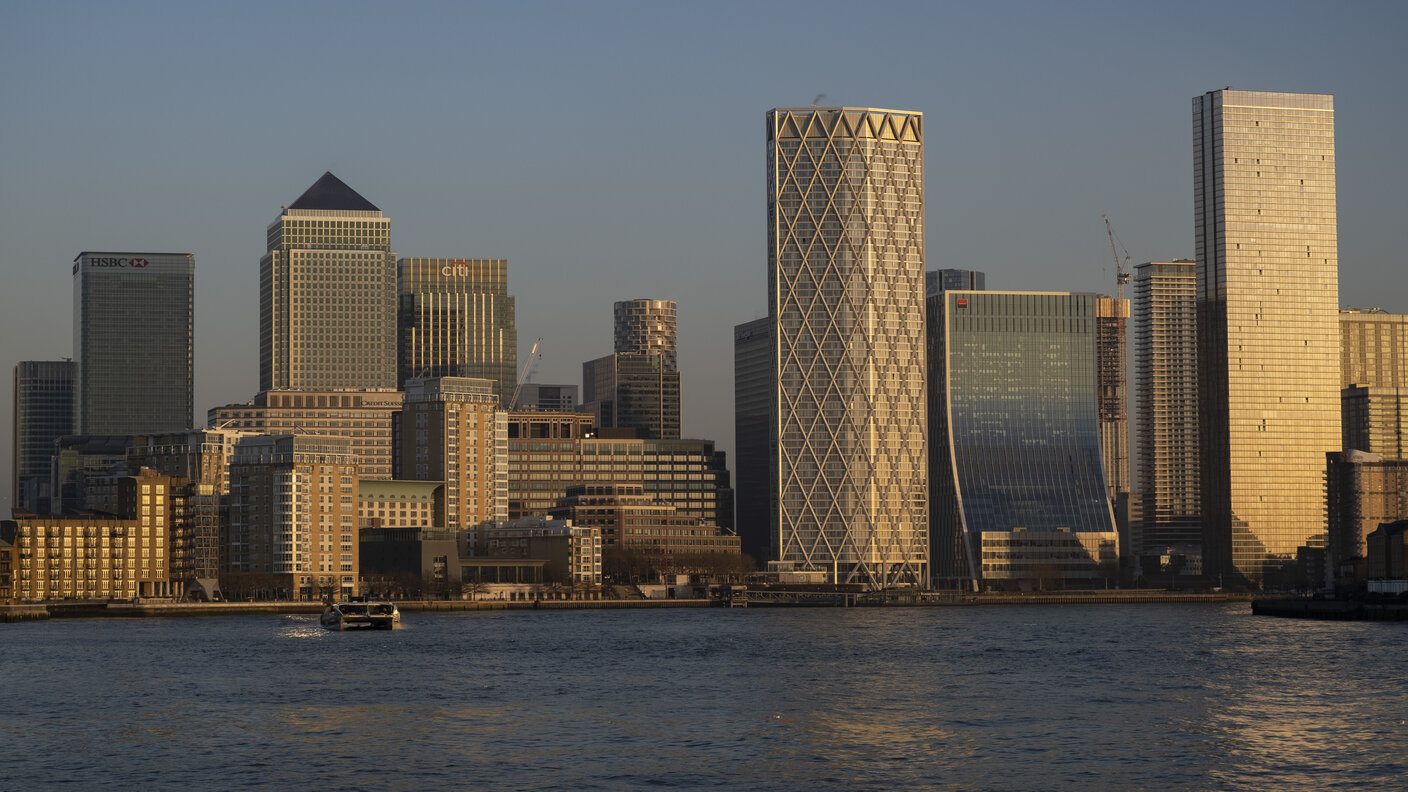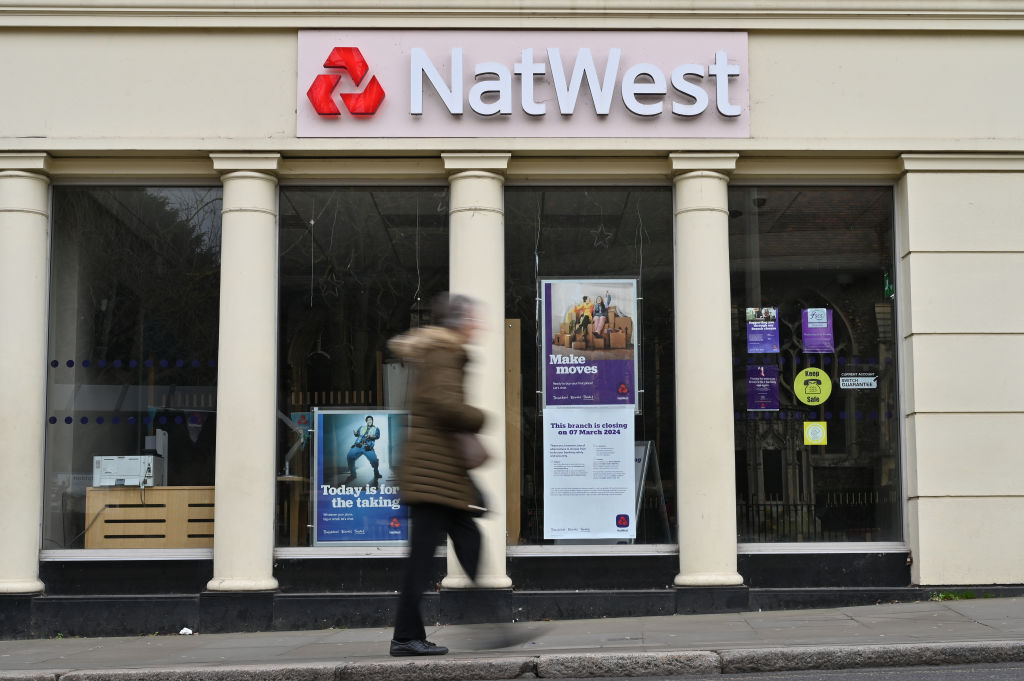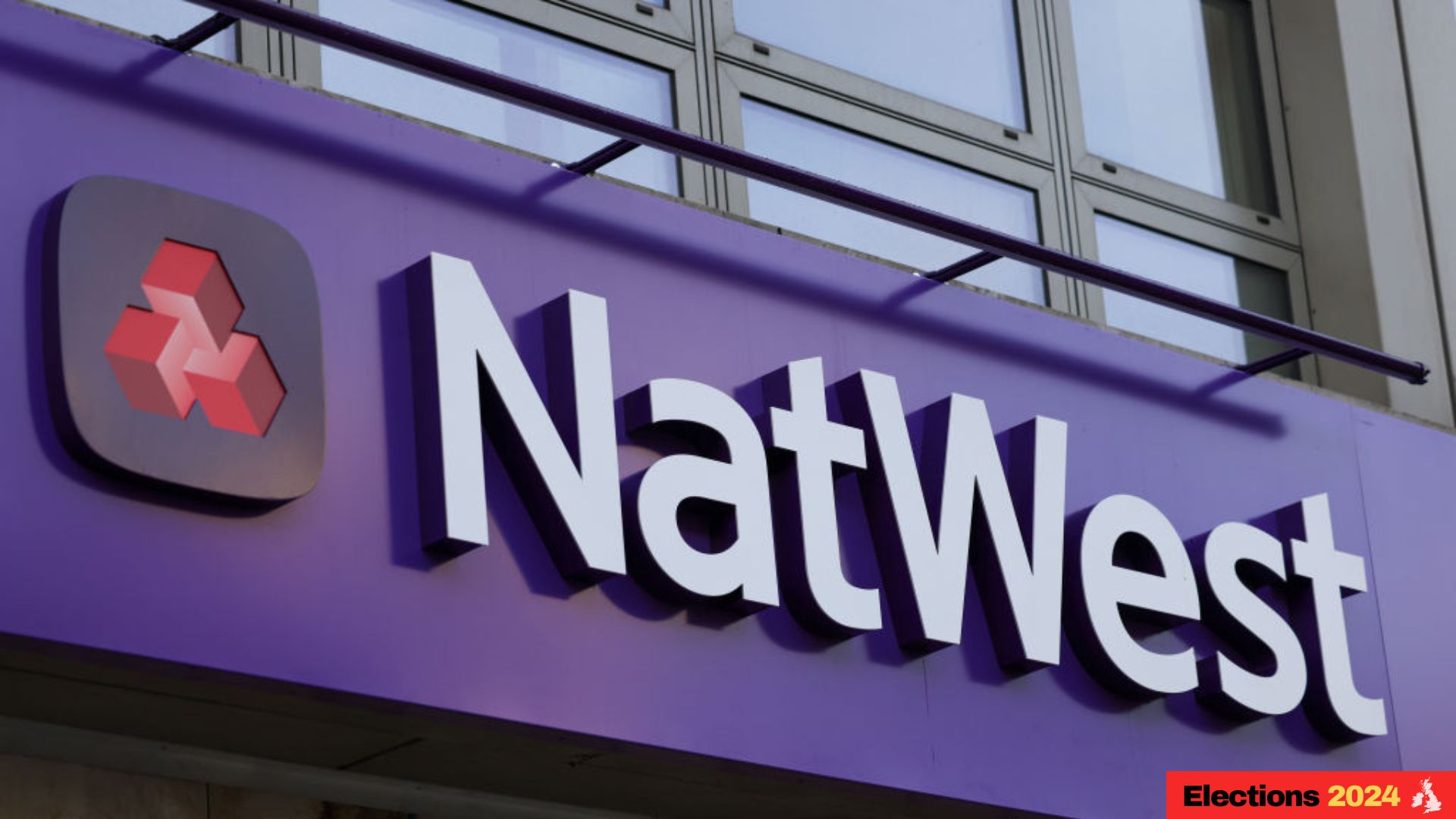3 stocks to buy in a high interest rate environment
We take a look at three stocks to buy in a high interest rate environment that should be able to navigate economic uncertainty.


Get the latest financial news, insights and expert analysis from our award-winning MoneyWeek team, to help you understand what really matters when it comes to your finances.
You are now subscribed
Your newsletter sign-up was successful
Want to add more newsletters?

Twice daily
MoneyWeek
Get the latest financial news, insights and expert analysis from our award-winning MoneyWeek team, to help you understand what really matters when it comes to your finances.

Four times a week
Look After My Bills
Sign up to our free money-saving newsletter, filled with the latest news and expert advice to help you find the best tips and deals for managing your bills. Start saving today!
We’ve picked out three stocks to buy that should perform well in a high interest rate environment as inflation remains stubbornly high.
Indeed, even though central banks around the world have raised interest rates to highs not seen since the 2008 financial crisis in response to double-digit inflation, it does not look as if inflation is going to fall any time soon, suggesting rates could remain high for some time.
In the UK the Monetary Policy Committee raised rates to 4%. In the US the Federal Reserve raised rates to between 4.5 to 4.75%, and the European Central Bank’s base rate sits at 2.5%.
MoneyWeek
Subscribe to MoneyWeek today and get your first six magazine issues absolutely FREE

Sign up to Money Morning
Don't miss the latest investment and personal finances news, market analysis, plus money-saving tips with our free twice-daily newsletter
Don't miss the latest investment and personal finances news, market analysis, plus money-saving tips with our free twice-daily newsletter
A high interest rate environment spells bad news for investors. In theory high interest rates discourage spending and encourage saving. Reduced consumer demand doesn’t bode well for companies.
High interest rates also push up the cost of borrowing, meaning companies with lots of debt are likely to struggle. That said, there’s a few sectors that are more sheltered from broader conditions, and might even benefit from them.
Here are our three favourite stocks to buy in the current interest rate environment.
3 stocks to buy in a high interest rate environment
NatWest (LSE: NWG)
Banks benefit from rising interest rates because their net interest margin expands. This means they make a profit from charging a higher rate on products such as loans and mortgages, than they pay on deposits, like savings accounts.
The bank’s net interest margin, the difference between what it pays out and what it receives in interest payments, widened to 2.85% in 2022 from 2.30% in 2021. The wider the gap, the higher the bank’s profits.
NatWest predicts interest rates will hold at 4% throughout 2023. The bank recorded profits of £5.1bn before tax in its 2022 full year results, up from £3.8bn a year earlier.
Additionally the bank announced a £800m share buyback programme, as well as a dividend of 10p per share as a reward to shareholders.
But despite the positive results, NatWest’s share price dropped by about 9% after the figures were released. This is largely due to the bank’s subdued outlook for 2023, combined with uncertainty around the UK economy for the year.
Higher interest rates also mean more people are likely to default on their loans. The bank has set aside £337m to prepare itself for defaults.
Still, the lender thinks its customers “are so far resilient”, with bad debt losses coming in at 0.09% of the loan book, “and much of that was assumptions about what’s coming next, rather than loans that have already soured”.
The bank has come a long way since it was bailed out by the government in the wake of the financial crisis. Today it looks well poised to navigate future turmoil, and will continue to benefit from the high interest rates environment.
Diageo (LSE: DGE)
Odds are, if you drink alcohol, you’ve probably tried at least one of Diageo’s products. The spirit maker owns over 200 well-known, well-loved brands, including Guinness, Baileys and Captain Morgan rum.
Consumers turn to these brands because they’re well-known, and they might prefer them to a supermarket’s own brand, for instance. This gives the company pricing power, enabling it to pass costs onto consumers.
That’s evidenced in Diageo’s interim results, released in January. Despite price increases to its beers, net sales were up 18% showing consumers are willing to pay a higher price for their drinks.
Additionally a lot of its brands are considered premium, consumed by drinkers with more discretionary income. As such, demand is less likely to be affected by inflation and the cost of living.
In its interim results announced in December, Diageo announced it had commenced a share buyback programme due to return £500m to investors as well as a 5% increase to its dividend, which has grown consistently over the last few years.
The company has also caught on to the fact younger people are drinking less, so it’s investing in non-alcoholic drinks to expand its portfolio.
Diageo has a simple business model and solid products, which should support the business through these tough times.
AstraZeneca (LSE: AZN)
The need for healthcare is going to exist no matter the economic climate, so despite peaks and troughs, pharmaceutical companies will likely always have a level of demand for their products.
AstraZeneca is perhaps most known for its Covid-19 vaccine. But the company has a wide range of treatments, and a lot of projects in its pipeline.
Additionally, due to patents, it has a certain level of protection over its products. While other companies might be making similar drugs, these patents and strong relationships with health providers gives it a certain level of pricing power.
The vaccine boosted its share price throughout the pandemic, but it’s likely got further to go. Demand for its cancer treatment, which is a big and growing part of its portfolio, is strong and, unfortunately, unlikely to diminish.
Moreover, the world’s population is ageing, which means more people will require medical treatment.
It looks expensive, but shares could continue to grow as more of its drugs are released and approved. These processes take time, and patents expire, but long term investors will continue to benefit, regardless of what central banks are doing.
More on share tips:
- Share tips of the week – 24 February
- Are housebuilder stocks looking cheap for dividend yields?
- Law Debenture Investment Trust offers something for all investors
Get the latest financial news, insights and expert analysis from our award-winning MoneyWeek team, to help you understand what really matters when it comes to your finances.
Nic studied for a BA in journalism at Cardiff University, and has an MA in magazine journalism from City University. She has previously worked for MoneyWeek.
-
 Should you buy an active ETF?
Should you buy an active ETF?ETFs are often mischaracterised as passive products, but they can be a convenient way to add active management to your portfolio
-
 Power up your pension before 5 April – easy ways to save before the tax year end
Power up your pension before 5 April – easy ways to save before the tax year endWith the end of the tax year looming, pension savers currently have a window to review and maximise what’s going into their retirement funds – we look at how
-
 The challenge with currency hedging
The challenge with currency hedgingA weaker dollar will make currency hedges more appealing, but volatile rates may complicate the results
-
 NatWest boss says a return to full private ownership expected next year
NatWest boss says a return to full private ownership expected next yearThe UK Treasury's stake in NatWest has fallen to below 11% - here is what it means for the share price
-
 What’s happening to the NatWest share sell-off? Impact of general election 2024 explained
What’s happening to the NatWest share sell-off? Impact of general election 2024 explainedThe UK government has held shares in NatWest Group since the 2008 Financial Crisis. But a plan to sell off a large chunk of them appears to have been delayed.
-
 Government considers selling remaining stake in NatWest – are the shares worth it?
Government considers selling remaining stake in NatWest – are the shares worth it?News Retail investors may get a chance to buy the remaining taxpayer shares in NatWest but its performance so far this year may not make it an attractive investment.
-
 Where to invest in the metals that will engineer the energy transition
Where to invest in the metals that will engineer the energy transitionA professional investor tells us where he’d put his money. This week: John Ciampaglia, manager of the Sprott Energy Transition Materials UCITS ETF.
-
 Tap into the key long-term growth trends with these resilient performers
Tap into the key long-term growth trends with these resilient performersA professional investor tells us where he’d put his money. This week: Zehrid Osmani, portfolio manager, Martin Currie Global Portfolio Trust, picks three favourites.
-
 Look beyond familiar stockmarkets for reliable returns in rough times
Look beyond familiar stockmarkets for reliable returns in rough timesTips A professional investor tells us where he’d put his money. This week: Giles Parkinson, managing director of global funds at Close Brothers Asset Management.
-
 7 winners and losers in the leisure sector
7 winners and losers in the leisure sectorTips It’s been a wild three years for hospitality, but crisis creates opportunities, says Michael Taylor of Shifting Shares.
